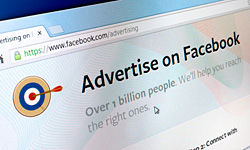Facebook under Fire October 2017
Want more free featured content?
Subscribe to Insights in Brief

Facebook is facing scrutiny from the US Senate, the House of Representatives, and Special Counsel Robert Mueller, head of the Justice Department probe into possible Russian meddling in the 2016 presidential election. Mueller obtained a search warrant to require Facebook to release "copies of ads and related information it discovered on its site linked to a Russian troll farm, as well as detailed information about the accounts that bought the ads and the way ads were targeted at American Facebook users," according to CNN (17 September 2017). To date, Facebook has discovered 3,000 ads ($100,000 in ad sales) that link to fake accounts from the Internet Research Agency (a pro-Kremlin troll farm) between June 2015 and May 2017.
Investigations continue to unfold, but in order to comply, Facebook required a search warrant to release user-account information to the federal government. Facebook's privacy policy, however, permits it to sell ads to third parties that target on the basis of users' personal information without users' knowledge or permission. CNN says further that Facebook "ads are purchased through the company's self-service tool, which allows buyers to independently purchase and target ads, often without human interaction" (sales support). Without human involvement, no vetting process takes place for fake news or ads purchased by hostile foreign governments or organizations.
Without knowledge of exactly what user information Facebook has in its database, one can only imagine that users' geography, political outlook, age, or education might be available to third parties as targeting criteria. For example, in the case of the Russian-placed ads or fake news, information about a political candidate might target by community, state, or political outlook along a spectrum from very conservative to very liberal on the basis of comments or opinions posted by individual Facebook users. At this time, "Facebook does not plan to release information about the ads...and will not commit to notifying those who were targeted about what happened to them," reports the Daily Beast (14 September 2017).
GfK MRI's fall 2016 study shows 63% of all US adults age 18 and older have visited Facebook in the past 30 days. Of those who have visited, only 8% of adults self-report that they never vote in a national election. Interestingly, about one-third more Facebook visitors have a conservative outlook than have a liberal outlook. Who may have been targets is less clear than is who may have been influenced. VALS provides insights about voters and likely influence.
Among adults who have visited Facebook in the past 30 days, the distribution of VALS types includes some portion of all eight groups: Achievers (17%) and Experiencers (16%) represent the highest proportions; Survivors (8%) represent the lowest proportion. Between Achievers and Experiencers who may have seen the ads, Achievers are more likely to have been influenced by fake news and negative presidential-candidate ads than are Experiencers. To understand why, some data are important; understanding of the groups is critical.
Relevant Data
On average with all US adults, 40% of Achievers vote. Two in five (43%) describe themselves as very or somewhat conservative in their political outlook; one-third report Republican-party affiliation. Two in five describe themselves as middle of the road; 40% have no party affiliation. More than half of Achievers trust the internet more than other media. Achievers (24%) find following the activities of friends and family on a social network very important, in comparison with 14% who say finding information about news or other current events is very important. Three in five Achievers live in one of three US marketing regions:
- West Central (Iowa, Kansas, Minnesota, Nebraska, North Dakota, South Dakota, Idaho, Montana, and Wyoming)
- Southeast (Kentucky, Tennessee, North Carolina, South Carolina, Georgia, Arkansas, Alabama, Mississippi, Florida, and Louisiana)
- Pacific (Alaska, Oregon, Washington, California, and Hawaii).
Experiencers are below-average voters (25%): 30% describe themselves as very or somewhat conservative in their political outlook; 40% describe themselves as middle of the road.
Critical Understanding
Undecided voters are always the most attractive political targets. Achievers, however, are adept at hiding in the middle and therefore are the most likely of all consumers to respond "somewhat" when they face only four choices and no middle choice. It's highly unlikely that as many Achievers are in the middle, or have no party affiliation, as response numbers suggest. Achievers are loath to disclose how they actually feel or where they really stand for fear of being subject to criticism. Politics aside, Achievers are easily influenced by authority figures who are more likely successful people (people with a lot of money) than leaders with proven experience. Busy Achievers are not heavy news consumers—Russian-sponsored ads likely were on pages other than Facebook news pages. Achievers are tuned in to news that may affect themselves or their family: They quickly note salacious fake-news stories about a real or potential threat and share those stories with friends and family—Achievers have a herd mentality. Having an awareness of headlines and actually evaluating news are quite different: High-drama, bite-size messages have more appeal than thought-provoking stories. Finally, Achievers—anchors of the status quo—avoid new situations because they don't want responsibility. In their view, therefore, in the 2016 presidential election, a woman president—depending on her decisions and actions—might reflect negatively on all women.
The high incidence of political middle-of-the-road Experiencers may be surprising unless one understands that politics holds little interest for the vast majority. Similar to Achievers, Experiencers are drawn to high-drama, bite-size messages but only to messages of interest. Gender- and ethnic-blind, Experiencers are willing to challenge the status quo and to go against the grain of populist notions.
Implication
Russian-sponsored Facebook ads and their effect on Achievers may well have contributed to Hillary Clinton's loss of the presidential election.
If you're a Facebook user, how well have you read Facebook's privacy policy?
Visit the Why-ology Library for previously featured items and additional featured content. Be sure to visit the VALS homepage for more articles.